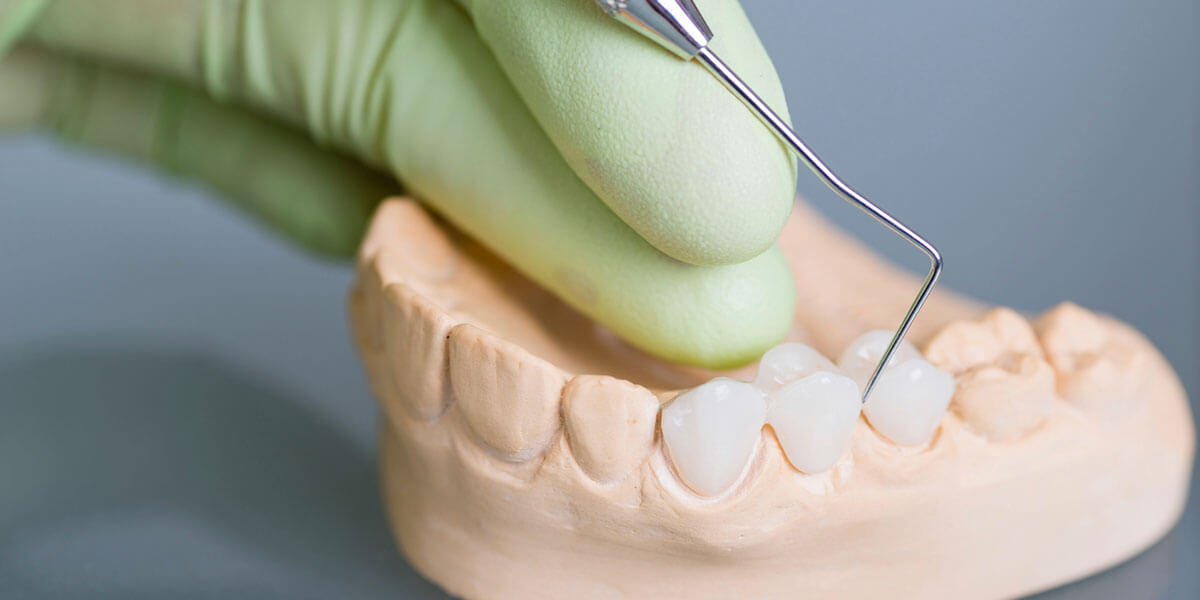Dental Bridges in Somersworth
Bridge vs. Implant
Godfrey Dentistry provides dental bridges in Somersworth, NH. Call 603-692-2045 to learn more and schedule your appointment.
If you are missing one or more teeth, a dental bridge is one of the options you have for replacing them. There are a few different types of bridges, but what they all have in common is that they bridge the gap in your smile using supports, or abutments, to hold prosthetic teeth in place. When you see Dr. Godfrey for a consultation, he will evaluate your teeth, listen to your treatment goals and concerns, and help you choose the right dental bridge for your needs and preferences.

Types of Dental Bridges
We provide the following dental bridge options at Bracken Godfrey Dentistry in Somersworth:
Traditional Dental Bridges
The most common type of dental bridge is the traditional bridge. It involves using the two teeth adjacent to the gap in your smile as abutments to support one or more prosthetic teeth. In order to accomplish this, the abutment teeth must be trimmed down so crowns can be placed on them to hold the bridge in place. While this results in a fairly stable restoration, it’s important to know that the abutment teeth are at a higher risk of tooth decay or fracture.
If only one adjacent tooth is available for support, a cantilever bridge may be used, which needs the support of a single crown. This places even more stress on the supporting tooth, so cantilever bridges are typically only used when no other option is available.
Maryland Bridges
Maryland bridges don’t require crowns for support; instead, a metal or ceramic support structure is bonded to the abutment teeth. This preserves the abutment teeth, but the downside is that Maryland bridges are not as strong or durable as other types of bridges.
Implant-Supported Bridges
An implant-supported bridge is an excellent alternative to a traditional bridge because it doesn’t require any support from other teeth. Instead, dental implants are used for support. Implant-supported bridges are long-lasting, durable, and aesthetic.
Frequently Asked Questions About Dental Bridges
What is better, a bridge or an implant?
In general, we recommend dental implants over traditional and Maryland bridges because implants replace the roots of missing teeth, not just the visible portion, and they prevent bone loss in the jaw. That said, every patient is unique, and for some, traditional bridges are preferable to implants.
Are dental bridges permanent?
Dental bridges are permanent in the sense that they are attached to the abutments and cannot be removed, but most bridges will need to be replaced at some point, either due to wear or breakage.
Is a bridge less expensive than an implant?
Yes, traditional and Maryland bridges are less expensive than dental implants. On the other hand, dental implants are stronger, last longer, and won’t compromise the health of your other teeth.
Are dental bridges painful?
There’s no pain involved in getting a dental bridge. Local anesthetic is used to numb the area where we’re working when preparing abutment teeth for traditional bridges or when placing implants for implant-supported bridges.
Do you need a bridge after a tooth extraction?
It’s recommended that you replace your tooth after an extraction (unless it’s a wisdom tooth), but that replacement doesn’t necessarily have to be a bridge. It could be a single-tooth dental implant or, if you’re missing a number of teeth, you could also be a candidate for a partial denture.
Call 603-692-2045 to schedule your appointment.
